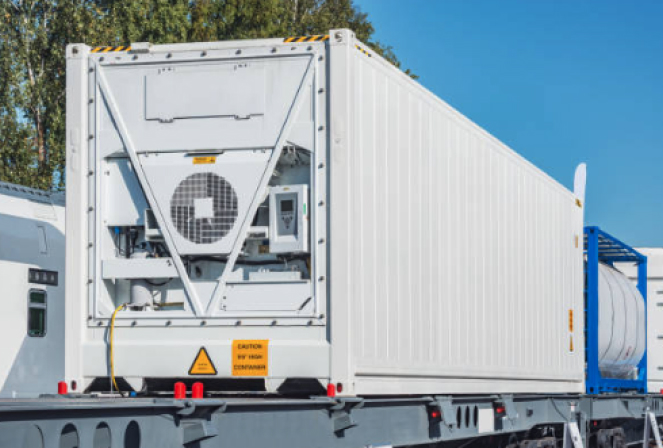9 Owner Operator Truck Driver Tips That Every New Driver Should Know
You have new freedoms and responsibilities once you become an owner-operator truck driver. You have your own truck, your own business, and an open road ahead of you. For many experienced drivers, this is an exciting prospect, but navigating the entrepreneurial side can also feel daunting. In this guide, we share a dozen truck driver tips to help owner-operators rule the road.
You have new freedoms and responsibilities once you become an owner-operator truck driver. You have your own truck, your own business, and an open road ahead of you. For many experienced drivers, this is an exciting prospect, but navigating the entrepreneurial side can also feel daunting. In this guide, we share a dozen truck driver tips to help owner-operators rule the road.
1. Prioritize Your Business Responsibilities
As an owner-operator, you are not just a driver; you are a business owner. The dual roles of owner and operator come with entrepreneurial duties crucial to your success. You haul the loads, find the loads, and maintain all the additional infrastructure behind the scenes. In order to have loads to haul, you must prioritize your business responsibilities. These duties include building the brand, reputation, and business behind your truck driving niche.
2. Create Your Business Infrastructure
An extensive business infrastructure supports every successful business, and your owner-operator venture is no different. Establish workflows for record-keeping, invoices, and client communication. The right technology solutions can make this process easier. Choose a transportation management system (TMS), an enterprise resource planning (ERP) solution, and a customer relationship management (CRM) system to optimize the various facets of your business.
3. Choose a Good Load Board
As an owner-operator, you are responsible for connecting with shippers and brokers and securing your own loads. A load board is an excellent platform for doing exactly this and more. Become a member of a lower board to connect with shippers and brokers and find the loads that are the most suitable for you to haul.
4. Choose Loads Strategically
Not all loads are the same. Choosing the right loads to book and building an efficient schedule is the key to success and profit. Work to minimize empty miles. This is better for the environment and better for your bottom line. Research the reputation of prospective partners and only book loads with reputable shippers and brokers.
5. Learn the Lingo
If you are completely new to the field, it is essential to note that the trucking industry has a unique set of language, terminology, and codes. As an owner-operator, you must be fluent in the lingo to communicate with other truck drivers and folks on the road. Truck drivers use CB 10 Codes to expedite communication over the radio. CB lingo also includes clever nicknames for cities throughout the United States. Additionally, truckers use slang words to communicate information to other truckers discreetly. Some examples include:
Alligator – A piece of tire is on the road ahead.
Bear – A law enforcement officer.
Bear Bite – A speeding ticket.
Bumper Sticker – A tailgating vehicle.
Comedian – The median between opposing lanes of traffic.
Fingerprint – Unloading a trailer by yourself.
Pay the Water Bill – A bathroom break.
6. Create a Budget
Everyone can benefit from creating and following a budget, but for owner-operator truck drivers, sticking to a budget is non-negotiable. Throughout your career, business will fluctuate based on market, geopolitical, and supply chain conditions that you will not be able to control. However, with a solid budget, your business can weather any storm and come out on top. The best practice is to create a business and a personal or family budget to stay on top of your finances in your life’s professional and personal areas.
7. Build Your Savings
A savings account is critical to professional and personal financial health. Aim to set aside at least 60 days of operating costs and at least 90 days of personal bills and only use the money for emergencies. These days, many banks offer high-yield savings accounts that are FDIC-insured. Placing your emergency funds in a high-yield savings account that is separated from your transactional accounts allows you to protect your emergency savings, keep your emergency savings separate from your everyday transactional accounts, and earn a bit of income through interest payments on the amount.
8. Set Aside Money for Repairs
As an owner-operator, you really do not want to be completely blindsided by unexpected repairs. Mechanic bills can be high, and the repair cost includes much more than the amount you pay the shop. Repair costs also include income loss, accommodations if you have to get a repair done away from home, and many incidentals that add up during any disruption to regular operations. In the ideal scenario, the repairs are covered by regular savings funds, not by emergency savings. So, keep this in mind when organizing your funds.
9. Stick to a Predictive Maintenance Schedule
Sticking to a predictive maintenance schedule is a great way to minimize unexpected and inconvenient repairs. Thoroughly conduct your pre and post-trip inspections, and do not cut corners. Many software tools powered by artificial intelligence (AI) and machine learning (ML) are emerging as valuable and easy solutions to help owner-operators proactively take care of their trucks. The software helps identify issues, ascertain the seriousness of the problem, and schedule vehicles for service. The technology relies upon sensors, telematics, maintenance management systems, and algorithms to help owner-operators make smart maintenance decisions. Predictive maintenance is better for your business because it reduces downtime, saves you money, and extends the life of your equipment.
Owner Operator Truck Driver Careers
QFS Transportation is one of the best intermodal trucking companies offering intermodal trucking services throughout the United States. At QFS, our drivers come first– that is why our network of Owner Operators has a great road-home balance, a dedicated support team and safety staff, and the experience needed to help our drivers succeed. QFS Transportation is always searching for experienced drivers across the entire nation.
To learn more about owner-operator trucking, read our blog, How to Become a Successful Truck Owner Operator.
If you are interested in hauling for QFS, fill out our Driver Application or our Tractor Application.


